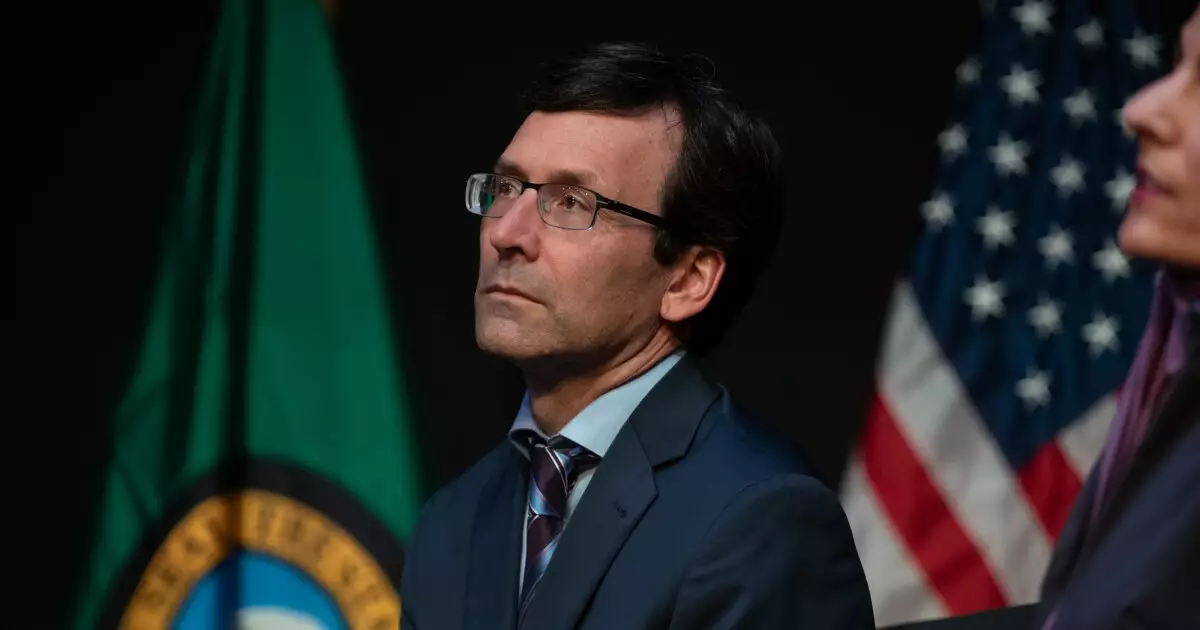The recent approval of the operating budget by Washington state’s House and Senate might have sparked initial optimism, but the ensuing reality check from Governor Bob Ferguson is a stark reminder of the precarious state of fiscal management in our political arena. The governor’s assertion, delivered with a tone of acute urgency, that the proposals are dangerously flawed due to excessive taxation and reliance on untested revenue streams, highlights an increasingly troubling trend: a legislature detached from the economic breath of Washington state.
The heart of the issue revolves around a staggering projected deficit of $16 billion over the next four years. This is not a minor hiccup; this is an indication of a systemic failure to foresee the consequences of fiscal irresponsibility. A shockingly significant percentage—28%—of the state’s budget hinges on federal funding, creating a dependency that risks our financial stability if future federal allocations continue to dwindle. Ferguson’s comments, likening the budget crisis to a “five-alarm fire,” underscore the gravity of the situation. It’s hard to argue with him when the stakes have escalated from manageable to catastrophic.
Unpacking the Taxation Debate
At the center of the legislative debate is the introduction of a wealth tax, a daring and novel proposition that promises an influx of revenue yet carries the weight of substantial legal challenges and implementation hurdles. Ferguson’s refusal to endorse a budget laced with excessive taxes stems from a well-founded skepticism regarding the viability of such a tax structure. In an era where fiscal sustainability is paramount, relying on an untested revenue source—especially one predicted to be swiftly challenged in court—slips into the territory of irresponsible governance.
What’s more, the lawmakers’ willingness to push for higher taxes reflects a deeper philosophical divide about the role of government. As someone grounded in center-right liberalism, I firmly believe that government should not be the first resort when it comes to financial solutions. Responsible budget management demands creativity and innovation, not a reflexive leap towards higher taxation. The real question should be: How can we optimize our existing resources while safeguarding our state’s financial future?
Essential Services on the Chopping Block
Ferguson’s insistence on preserving the rainy-day fund brings another troubling reality into focus: the risk of essential services facing cuts if we don’t recalibrate our approach to budgeting. He seems to advocate for a tightrope walk that avoids the extreme of all-cuts budgets while also sidestepping the other end fraught with soaring taxes. But how realistic is this? With significant cuts to federal funding already impacting hospitals and other crucial services, the state’s lawmakers must confront an uncomfortable truth: without decisive and practical changes, the safety net for our most vulnerable citizens is at risk.
The constraints on the state budget have enormous implications for areas such as Medicaid, education, and disaster response. Protecting these sectors goes beyond mere dollars and cents; it addresses the very fabric of societal stability. Ferguson’s reference to preservation of core services rather than grand initiatives reflects the necessary pivot towards safeguarding public welfare over political posturing.
The Need for Realistic Revenue Projections
One cannot overstate the importance of creating a budget grounded in realistic revenue projections. Ferguson’s push for a budget that avoids over-optimism isn’t just prudent; it’s essential. In an age of fluctuating markets and unpredictable federal support, our approach to budgeting must reflect a hard-nosed assessment of what we can realistically expect to generate. A cautious approach to revenue acts not only as a bulwark against economic uncertainty but also preserves our bond ratings, which ultimately define how we can finance essential infrastructure projects.
Washington’s triple-A ratings and positive outlook from rating agencies are more than just badges of honor; they are the lifeblood for funding public projects at reasonable costs. Thwarting them through poor financial choices could cripple the state’s ability to pursue growth while ensuring the safety and efficacy of public services.
Preserving Reserves in a Stormy Climate
The call from Washington’s Treasurer Mike Pellicciotti to maintain sufficient reserves is a matter of fiscal discipline in a world fraught with uncertainty. History has shown us that swift, unfettered expansion creates financial storm clouds that can devastate economies, and we are not immune to such volatile shifts. The rainy-day fund serves not merely as a safety net but as a critical instrument that can stabilize our economic foundation in tough times.
As the legislature debates the future direction of Washington’s budget, let’s hope the focus shifts from quick fixes and political games to thoughtful strategies that prioritize long-term sustainability over short-term political victories. The conversation must pivot towards responsible management of resources and a more profound acknowledgment of the economic realities at play. The time for decisive change is now—our future depends on it.

